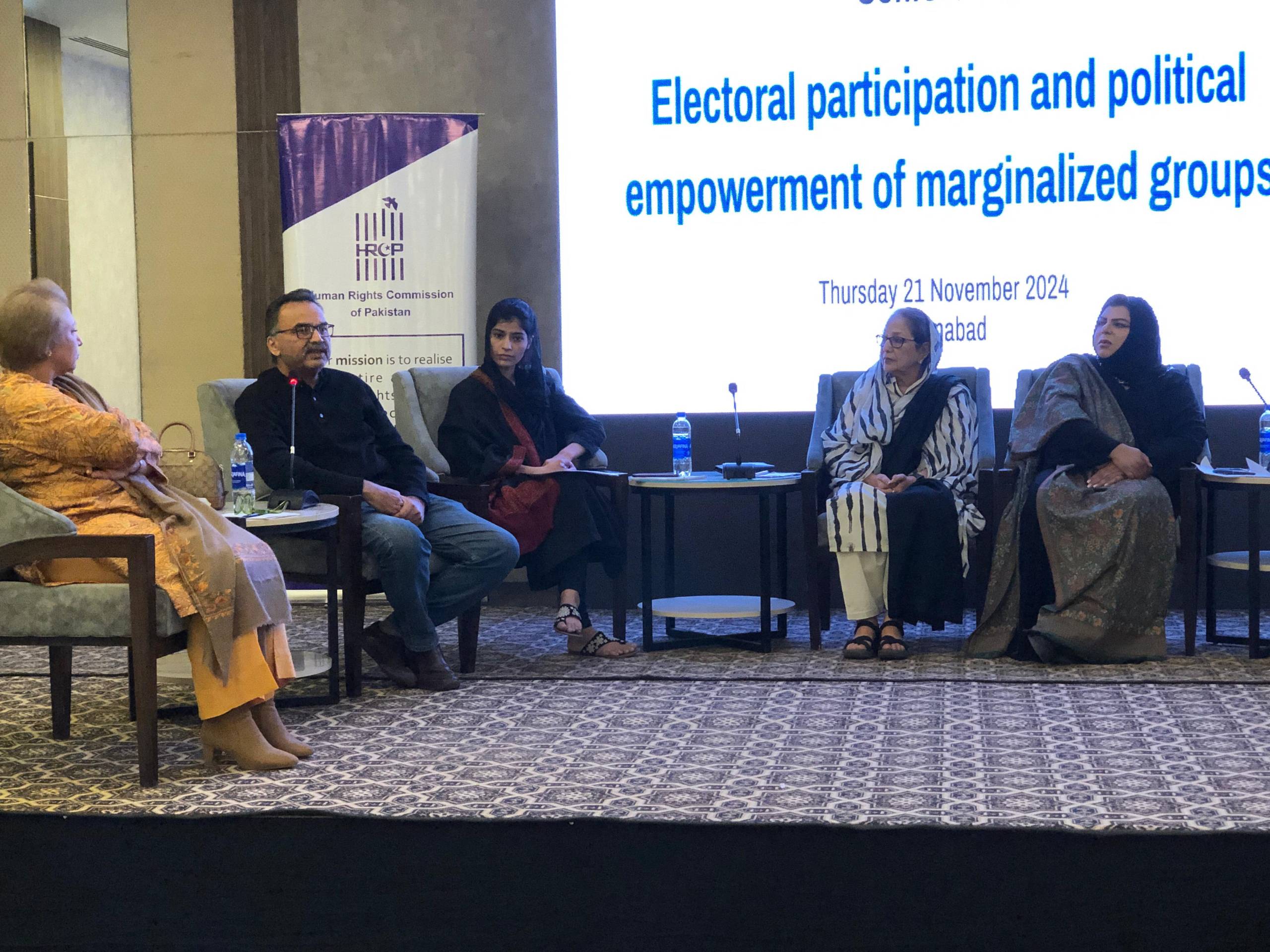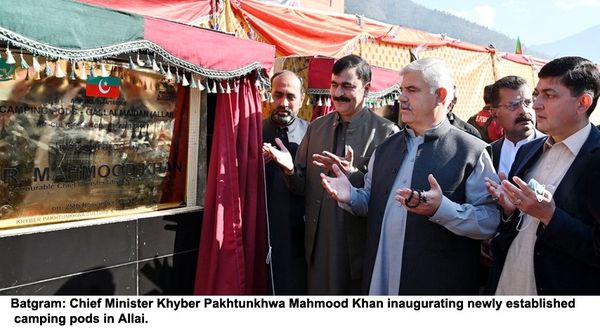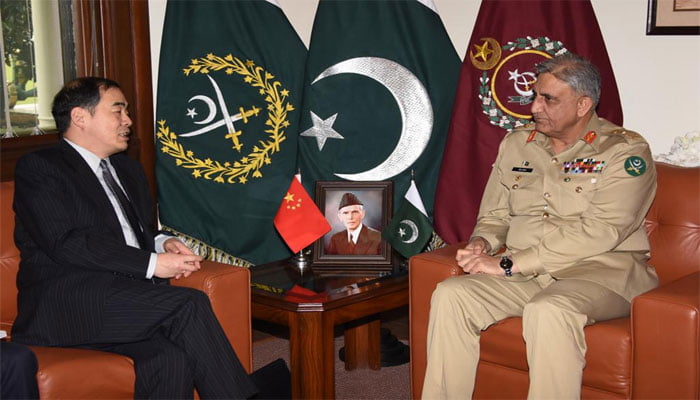Islamabad: Speakers at a national conference have called for greater political empowerment and electoral participation for marginalized groups, including women, transgender persons, religious minorities, and persons with disabilities.
The Human Rights Commission of Pakistan organised the conference in collaboration with Friedrich Naumann Foundation for Freedom (FNF) at a local hotel in Islamabad on Thursday and was attended by stakeholders from different sectors.
Introducing the conference, HRCP Secretary-General Harris Khalique said that democracy could only thrive when every citizen had an equal opportunity to participate in the political process. FNF Head Birgit Lamm said that citizens were aware of the importance of voting and committed to casting their vote.
Lawyer and researcher Mavra Ghaznavi said that the most common problem concerned access to polling stations for women in remote areas and for persons with disabilities. For disability rights activist Zahid Abdullah, the fact that women with disabilities were sorely underrepresented as voters was cause for great concern.
Trans rights activist Nayyab Ali pointed out that discrimination against trans voters was still rampant because of the stigma attached to their gender identity and gender expression. Academic and activist Farzana Bari pointed to the increase in violence and politics affecting women, the working class, persons with disabilities, and trans persons disproportionately. Lawyer Mahmood Iftikhar Ahmad said that the creation of a separate electoral roll for the Ahmadiyya community had left them vulnerable because their personal data was accessible and used to target Ahmadiyya homes and businesses.
PML-N MNA Shaista Pervaiz Malik suggested making it easier for ordinary citizens to find their names on electoral rolls on polling day. PTI MNA Shandana Gulzar and JUI-F leader Asiya Nasir alleged that women voters and voters from religious minorities had faced threats of violence on polling day.
Romana Bashir, deputy director at Peace and Development Foundation said the political parties pick members for reserved seats who only loyal to the leadership and salute to them but never served their communities and not aware about the issues of marganlised groups.
She pointed out that quota system needs amendment to ensure fair selection and pick real people from the communities who can properly address the issues of their respective communities.
Elections specialist Tahir Mehdi pointed out that token measures—whether ramps for voters with disabilities or reserved seats for women—were not a long-term solution to addressing the political marginalization of vulnerable groups so long as democratic systems were subject to elite capture. Rights activist Romana Bashir suggested that political parties should initially implement quotas for candidates from religious minorities but empower them to the extent that such quotas should ultimately become unnecessary.
MQM-P MNA Kishwar Zehra emphasized the need for greater inclusion of marginalized communities, questioning the current state of democracy in Pakistan and the lack of representation for religious minorities. She highlighted the importance of implementing laws and policies that ensure equality and justice for all citizens.
Also read; Ballot Delivery Issues Disrupt Voting for Disabled in the Feb 08 Elections
PPP MNA Sehar Kamran acknowledged the challenges faced by marginalized groups in political participation and decision-making.
She emphasized the need for genuine empowerment of women lawmakers and a more inclusive political system.
“We are living in a radical society and expressing truth hard in this country and if we see in a larger picture, political elite is enjoying in this country and the rest of people sufferings are increasing with each passing day,” She emphasized.
NADRA Deputy Assistant Director Abdul Haseeb assured participants that the organization was working to improve access to national identity cards, particularly for marginalized groups. ECP Assistant Director Amna Sardar committed to ensuring that voters’ polling stations were not changed randomly.
HRCP Council member Farhatullah Babar said creating awareness of the need for registration among voters was a peripheral problem. Instead, the ECP, NADRA, and political parties must work to resolve structural issues around marginalized voters and candidates.
He said 9.5 million women have no national identity cards and the Nadra and ECP structural issues are depriviing women from the right to vote.
Concluding the conference, HRCP Vice-Chair Islamabad Nasreen Azhar gave a vote of thanks.








